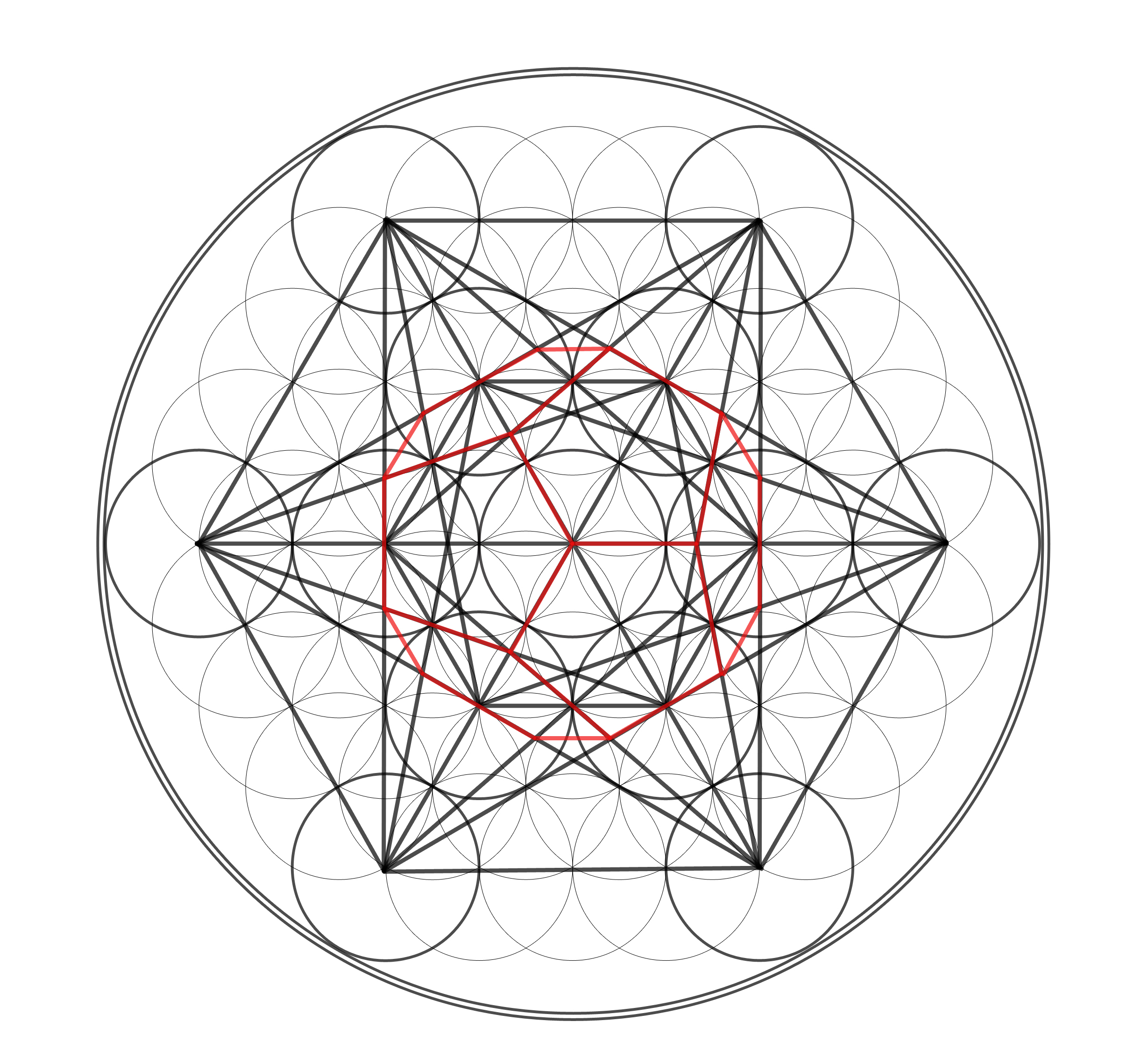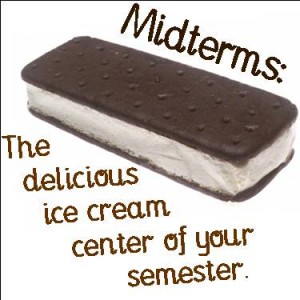|
|
LITR 4370 Tragedy
due by email b/w
Thurs. 19 Feb. & Sunday 22 Feb. |
|
(This webpage is the assignment for our course's first midterm. This page will be updated and refined up to 18 February.)
Three parts to Midterm1:
![]() Part 1. Genre
definition and example(s): Develop a "working definition" of
genre &
apply to any genre of your choice besides tragedy. Cite at least 2 examples of
your genre from your reading, viewing, or listening experience and 2 research sources from
course website or beyond. (4-7+ paragraphs, 2-3 double-spaced page
equivalent)
Part 1. Genre
definition and example(s): Develop a "working definition" of
genre &
apply to any genre of your choice besides tragedy. Cite at least 2 examples of
your genre from your reading, viewing, or listening experience and 2 research sources from
course website or beyond. (4-7+ paragraphs, 2-3 double-spaced page
equivalent)
![]() Part 2. Learning Essay 1. Write an
opening draft of
semester-long essay on overall learning (or teaching) experience,
particularly on nature of tragedy and
comedy (4+ paragraphs, 1.5-2 double-spaced page equivalent)
Part 2. Learning Essay 1. Write an
opening draft of
semester-long essay on overall learning (or teaching) experience,
particularly on nature of tragedy and
comedy (4+ paragraphs, 1.5-2 double-spaced page equivalent)
![]() Part 3.
Research Report 1 (proposal) on Special Topic. Review or
preview your choice of Special
Topics for
semester-long Research Report, to be developed in Midterm2
and concluded in Final Exam. (3-4 paragraphs, 1.5-2
double-spaced page equivalent)
Part 3.
Research Report 1 (proposal) on Special Topic. Review or
preview your choice of Special
Topics for
semester-long Research Report, to be developed in Midterm2
and concluded in Final Exam. (3-4 paragraphs, 1.5-2
double-spaced page equivalent)
Special requirements:
![]() Provide
titles
for all essay-answers to all three parts.
Provide
titles
for all essay-answers to all three parts.
![]() Refer to a previous midterm or final exam sample from
Model Assignments at least once somewhere in your
exam. (More than one reference can be impressive.)
Refer to a previous midterm or final exam sample from
Model Assignments at least once somewhere in your
exam. (More than one reference can be impressive.)
![]() I
I
![]() In Essay 2 or anywhere,
refer to most if not all the plays
we read up to the midterm, including Oresteia trilogy (Agamemnon
+ selections from
Libation
Bearers &
Euminides);
Mourning Becomes Electra /
Homecoming, and
Lysistrata; plus or minus other plays
(or films) you know or class has presented,
like The Bacchae.
In Essay 2 or anywhere,
refer to most if not all the plays
we read up to the midterm, including Oresteia trilogy (Agamemnon
+ selections from
Libation
Bearers &
Euminides);
Mourning Becomes Electra /
Homecoming, and
Lysistrata; plus or minus other plays
(or films) you know or class has presented,
like The Bacchae.
Audience: a future member of our class (who may read your exam on Model Assignments). Help that student learn his or her way through our course materials as you have. Make that future student care about what both of you may learn!
Of course your ultimate audience is me, your ancient instructor, but I mostly respond to how well you can show what you're learning, both in terms of responsibly accounting for essential course content and how readable and compelling your writing can be.
Most unusual feature of this course's midterms and final exam: Parts 2 & 3 (Learning Essay 1 & Research Report 1) are semester-long writing projects. In response to feedback from instructor and your own learning, you will revise, update, and extend what you've written to Midterm2 and the Final Exam.
Several of my courses, including Tragedy, feature writing assignments that continue from midterms to finals, but this is the first try at requiring students to revise and improve earlier parts.
Rationale: Writing is the most important skill Literature teaches, and the best-proven way to improve writing is through guided rewriting.
The most likely complication is that your research report topic will change somewhat as you continue your research. You may change your topic, but you still need to review your earlier research and connect to new topic by explaining the change and any possible continuity.
Where students go wrong: They ignore the resources available on the exam and website, trying to remember or make things up instead of clicking on terms and referring to objectives.
![]()
![]()
![]()
![]()
![]()
![]()
![]()
![]()
![]()
![]()
![]()
![]()
![]()
![]()
![]()
![]()
Part 1. Genre definition and example(s): Develop a "working definition" of genre & apply to any genre of your choice besides tragedy (though it can relate). Cite at least 2 examples of your genre from your reading, viewing, or listening experience and 2 research sources from course website or beyond. (4-7+ paragraphs, 2-3 double-spaced page equivalent)
![]() Your genre may be any item (except tragedy) from the
list of genres or elsewhere
on webpage or in your experience. (You may compare-contrast or otherwise relate
to tragedy.)
Your genre may be any item (except tragedy) from the
list of genres or elsewhere
on webpage or in your experience. (You may compare-contrast or otherwise relate
to tragedy.)
![]() Your genre may be literary or extra-literary, for instance a category or genre
of film, music, theater, dance, visual art (genre paintings), reality TV,
sitcoms, stand-up comic monologues, etc.
Your genre may be literary or extra-literary, for instance a category or genre
of film, music, theater, dance, visual art (genre paintings), reality TV,
sitcoms, stand-up comic monologues, etc.
Your choice of genre and examples will be your primary text to analyze in at least two ways:
![]() For choices, start with what you
like or go to
List of Genres .
For choices, start with what you
like or go to
List of Genres .
![]() Refer to
Genres,
Narrative Genres,
and / or
Aristotle's Poetics
Refer to
Genres,
Narrative Genres,
and / or
Aristotle's Poetics
![]() Analyze your examples and compare & contrast your / their genre to other
genres (examples welcome)
Analyze your examples and compare & contrast your / their genre to other
genres (examples welcome)
Since there are no pure genres, don't panic if your genre or examples turn into or mix with other genres. Describe and evaluate.
Also don't panic if you can't finish describing everything in the time or space allowed. Summarize how far you've gotten and indicate what remains.
Recall course attitude: genres aren't rules but conventions or family traits; not boxes but yardsticks. If the genres change or connect with others, that's normal, so don't protest, just describe.
Warning: the biggest danger for students is neglecting materials available on website. Relating the course's materials to your reading makes a good start for demonstrating what you're learning.
![]()
Part 2. Learning Essay 1. Write an opening draft or first installment of the Learning Essay on your overall learning experience, particularly concerning nature of tragedy and comedy. This essay will continue in midterm2 and conclude in your final exam (3-4 paragraphs, 1.5-2 double-spaced page equivalent)
-
"opening draft" = first 4-6 paragraphs describing what you're learning about tragedy, particularly in relation to comedy. You will update, revise, and include this opening draft on your Midterm2 and Final Exam extensions of your Learning Essay.
-
For your final and midterm2 you're not totally locked into what you write for this opening draft. You may revise your opening draft or change directions as long as you explain and make transitions. The purpose is to start thinking and expressing. I'll offer feedback for improvements and possible extensions.
-
Even though our course is tragedy and tragedy must remain a focus, your essay isn't limited to tragedy. Compare and contrast to other genres. Also you may compare the tragedies we're studying to other works of drama, cinema, or fiction you've read or studied.
Possible approaches:
![]() Start with what you already knew or assumed about
Tragedy (along with other
genres) and transition from that earlier knowledge or attitudes to what you're learning
now. Compare,
contrast, evolve.
Start with what you already knew or assumed about
Tragedy (along with other
genres) and transition from that earlier knowledge or attitudes to what you're learning
now. Compare,
contrast, evolve.
![]() Use classic academic essay pattern of definition & example.
Introduce term(s), establish a "working definition" (or two), introduce examples,
describe how examples fulfill, challenge, or extend definition.
Use classic academic essay pattern of definition & example.
Introduce term(s), establish a "working definition" (or two), introduce examples,
describe how examples fulfill, challenge, or extend definition.
![]() Compare and contrast
Tragedy and
Comedy, using Aristotle's Poetics,
narrative genres, and
other sources to define the characteristics and appeals of each genre.
Compare and contrast
Tragedy and
Comedy, using Aristotle's Poetics,
narrative genres, and
other sources to define the characteristics and appeals of each genre.
Text references: Demonstrate extensive knowledge of Oresteia, Mourning Becomes Electra, and Lysistrata; use at least four coursesite sources; references to popular examples, texts beyond course, and Model Assignments welcome.
![]()
Part 3. Research Report 1 (proposal) on Special Topic. Explain, question, or otherwise discuss your choice for a semester-long research report on a subject drawn from our course's Special Topics (listed in brief form below).
-
For midterm2, you will update and revise your proposal and extend to report your findings from at least two research sources and what you learned.
-
For the final exam, you will update and revise the first two parts of your research report and extend to report findings from at least two more research sources.
Length: Your research report proposal for midterm1 should be 3-4 paragraphs explaining your source, your interest, existing knowledge, and some text-examples that feature your topic.
Text references: Use course texts as examples or models for your topic, but also welcome and encouraged to refer to popular examples or texts beyond course. (Introduction and development of texts for research report may be continued across semester.)
Research requirements: At least four sources beyond our course website, though you may use website sources in addition. (One of your four sources may be a student discussion on the same topic from Model Assignments.)
Assignment: Choose a topic for your semester-long research report from our course's Special Topics (listed in brief form below).
If you're stuck between two possibilities, describe attractions or possibilities for each.
Explain the source of your interest, any previous knowledge or examples or instruction relevant to topic.
1. Tragedy and its Updates (Obj. 2a)
2. “Plot is the Soul of Tragedy” + Comedy & Romance (Obj.1, Aristotle’s Poetics, Genres handout)
3. Families in Tragedy + The Oedipal / Electra Conflict
4. Tragedy and Spectacle
5. Classical Humanism and Judeo-Christianity or other religious traditions in Tragedy (Obj. 3)
6. Tragedy as greatest genre--extension of midterm essay.
7. Tragedy’s cultural and historical backgrounds (Obj. 3a)
8. Sophocles and O'Neill: a review of styles, subjects, and stature in four plays.
9. Teaching Tragedy
10. Nietzsche's Birth of Tragedy and the Apolline / Dionysiac.
11. Aesthetics of Tragedy: the sublime and beyond: What pleasures and pains with tragedy?
12. The so-called Tragic Flaw: where and what is it, and why do students and teachers fixate on it?
13. Self-generated topic of your choice that would be recognizable to a member of our class.
(
![]()
Grading standards: readability, interest, substance
Quality of writing: central theme(s) consistently present throughout essay + power and appeal; unity, organization, and development; transitions and connections; surface quality (absence of chronic errors); inclusion of titles.
Evidence of learning: All exams are expected to use central terms and themes from objectives with text-examples highlighted in lecture-discussion with competence. Knowledge from beyond the course and on-the-spot inventiveness are impressive, but first and foremost demonstrate mastery of the course’s essential materials. Beware my criticism: "You could have written this essay without taking the course."
Students naturally want to show what they already know and for the instructor to exclaim, "I have nothing to teach you—you know it all already!" But experience teaches that we never know everythingl. A more interesting persona or attitude for a critic is to discover something they don't quite understand but want to understand through writing, rethinking, rewriting. Questions, problems, and issues are good as long as you learn from them.
Extension of learning: The best exams not only comprehend the course’s terms, objectives, and texts but also use the student's voice to refresh, extend, or vary terms and themes with examples from the class and from experience beyond our class. Make our course meet the world!
Mix your language and ideas with the course's.
Guides for anticipating grading and comments:
-
Surface competence / readability: An occasional careless error won't kill your grade, given time pressures, but repeated or chronic errors are remarked and factored. If you have trouble with spelling, word endings, punctuation, etc., get help from a mentor or tutor (ask them to explain help).
-
Content: Use, explain, and apply course terms; refer frequently to objectives and texts.
-
Thematic organization: emphasize central themes of your essay. Connect parts of essay to form a unified whole. Use transitions. Organize paragraphs with topic sentences. (Helpful websites: unity, continuity, and transition; Thesis, topic sentences, transition.)
The best exams use terms, themes, and objectives recognizable from class meetings, demonstrate understanding of terms and objectives with quick working definitions and application to examples from texts, while also extending and refreshing common materials with the student's own language, examples, and analyses of shared texts.
Lesser exams talk about the texts but ignore terms and objectives. Students write what they would have said before starting the course. Instructor replies, "You could have written this without taking the course." Don't make me write this!
 |
 |
 |


